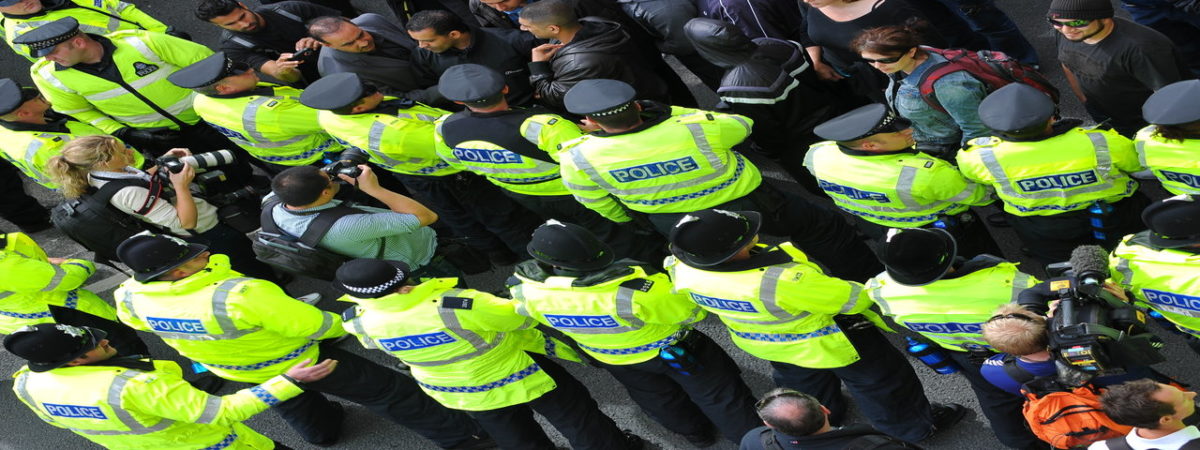Stop saying “the liberal left” when you mean “the anti-liberal left”
SUGGESTED



They even tend to do this in the context of articles and books rightly attacking the insanities and barbarities of cancel culture, police persecution of those not taking the ‘woke’ line on transgenderism and the proliferation of anti ‘hate speech’ legislation.
Why is it, then, that some political observers engage in this form of double-speak when it is a) empirically untrue and b) can only be of strategic help to those who are working to destroy Britain’s pluralistic heritage?
Let me first advance one possible reason for this fairly common misconception. This relates to the historical origins of what I will refer to as the ‘Culture-Control Left’ (CCL).
The CCL represents a diversification of the drive for state-enforced social change. At one time, whether in its social democratic or Marxian guises, the left focused on bringing about an economic transfer of power (albeit in very different ways). Then, from the 1970s onwards, it also increasingly became a political vehicle for the ‘new social movements’ of feminism, anti-racism, gay rights and environmentalism that had gained momentum in the previous decade. It became a broad coalition that was adept at politically weaponising a multitude of different types of social grievances. Some of these had some historic justification because of government imposed discrimination, such as the criminalisation of homosexuality until 1968.
At one time, therefore, many of the positions associated with the emerging new left were indeed coterminous with those of classical liberalism. Both strands were in joint opposition on many issues to the Mary Whitehouse-style, religiously-based conservative authoritarianism of the times. However, the CCL then went considerably beyond the demand for full legal and political equality. In fact, it turned against the idea of egalitarianism on an individual basis.
Its objective instead became the imposition of a full-scale cultural and economic transformation. This was predicated upon an entirely different conception of what constitutes ‘freedom’, one totally antipathetical to liberalism.
The starting point for the CCL, in keeping with Frankfurt School Critical Theory, is that society – or certainly capitalist societies – are naturally characterised by domination and conflict. It resembles an updated, identity-politics version of Thomas Hobbes’s negative understanding of the state of nature as a state of ‘war of all against all’. One that was and is diametrically opposed to John Locke’s view that human beings are by nature free and that, so long as they do not experience or engage in physical coercion, live in a state of peace. It contrasts too with Hayek’s conception of a harmonious spontaneous order.
This contrary view of society as a ‘will to power’ between groups rests upon an understanding of power that is totally at odds with that of Enlightenment rationalism. It is portrayed as an all-pervasive force that goes beyond the empirically observable specific actions of specific individuals and agencies. It is akin to the Medieval take on witchcraft; a mysterious, ineffable presence connected to those identified as having ‘privilege’.
Critical Race Theory is one obvious example of this post-rational/postmodernist mindset. It asserts, with no evidence whatsoever, that all white people harbour racist thoughts whether consciously or unconsciously. Group-based domination is manifested principally and informally, in an age of legal and political equality, through the communication of ideologies. In keeping with postmodernist theories of language it is systems of thought that are said to maintain hierarchies of power and so subject women, non-whites and other members of the allegedly victim-categories to subordination and ‘systemic’ oppression.
The solution to this state of affairs for the CCL is not, therefore, the carrying out of specific reforms such as the eradication of racist policing where that can empirically be shown to be the case. Rather, it is a wholesale transformation of British and wider western culture, as well as, along the way, a complete overthrow of capitalism, and its replacement with a socialist economy of some sort. The starting point is greater state regulation of how individuals are allowed to interact culturally, principally what they are allowed to express. Hence, the more censorship, the more ‘social justice’.
This inherently anti-liberal position is well expressed by Nadia Whittome MP when she writes: ‘We must not fetishise “debate” as though debate is itself an innocuous, neutral act. The very act of debate… is an effective, rollback of assumed equality and a foot in the door for doubt and hatred.’ When Extinction Rebellion stopped the distribution of national newspapers they disapprove of, Dianne Abbott MP and Dawn Butler MP – both of them members of the Socialist Campaign Group (SCG), of course – tweeted their praise (with no repercussions from their party).
The CCL commences from a particular ontological premise, namely that the principal unit of social analysis is not the individual but groups. The CCL attaches to these an essential, defining quality and status, namely that of oppressor or oppressed. ‘Liberation’ – to use the current neo-left buzzword – for the alleged victim categories requires the creation of a particular set of cultural and economic conditions. This necessarily requires treating individuals unequally to bring about the group-based transfer of powers the CCL seek.
The introduction of ‘protected characteristics’, as well as the asymmetrical regime of censorship we now experience, into British law is one indication of how we are moving towards an effective two-tier system of citizenship. This allocates different sets of rights and penalties depending upon how one is classified. We are in the early stages of a journey towards a post liberal future, politically and legally – and eventually, economically –speaking.
A version of this article was first published on 1828.
1 thought on “Stop saying “the liberal left” when you mean “the anti-liberal left””
Comments are closed.




I managed to read through this article, though not a political activist myself which I assume this
article is mainly aimed at, and will be read by. To be honest type time of heavy political thinking
normally goes over my head, not that I lack the intelligence to understand what is been said, but
more that I can’t be bothered to get into the political arguments this article sets out.
However, about two thirds of the way through I was drawn to the phrase “a complete overthrow of capitalism” Now I’m of a age that I’ve heard this phrase on a great number of occasions in the past
and to me personally if this is what the crux of this article boils down to, then there is no difference to what I’d call the “old left” have been advocating for years.